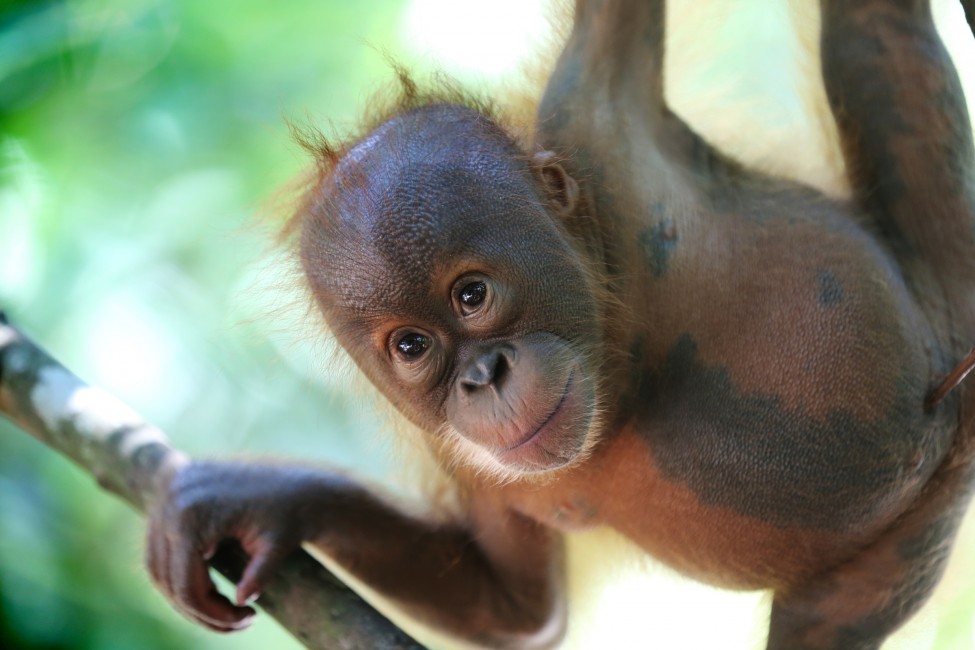
December 26, 2014
Person of the Forest
- as seen by -
 Alina Bachmann
Alina Bachmann
Orangutans are one of our closest and most enigmatic cousins. The name “orangutan” literally means “person of the forest” and was derived from an aboriginal belief that orangutans were humans hiding in the forest to avoid working or being made a slave. Today, orangutans are slaves to our consumerism.
Palm oil is found in one of every ten household products, from margarine and bread to lipstick and soap. It’s consumed by over a billion people around the world. It is also what’s driving the orangutan, a species with which we share roughly 97% of our genes, to extinction.
Palm oil producers are currently the rainforests of Sumatra and Borneo, where orangutans reside, into plantations—an effort to meet the global demand. What makes palm oil so desirable? It’s not that it is cheap to produce, but that companies earn a profit from both the rainforest timber and from the planted crops of oil palm. As a result, palm oil is predicted to eventually be the world’s most produced, consumed, and internationally traded edible oil.
“Person of the Forest” is a work of art that I created to raise awareness of the palm oil crisis, to connect people to it, and encourage them to change their everyday habits. I designated bins in my community to collect discarded packaging listing “palm oil” or one of its many aliases as an ingredient. Using these wrappers, I collaged life-size tree forms reminiscent of the treetops of Borneo to create an immersive environment that parallels the intensity of our growing dependency on these products.
A portion of my exhibition is currently on view in the Milwaukee County Zoo’s ape house. You can also see my work online at personoftheoforest.com.
Canon Rebel XTI
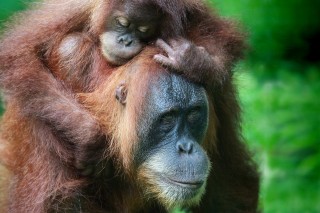
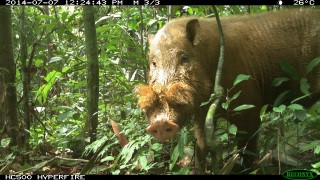
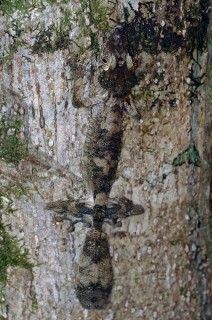
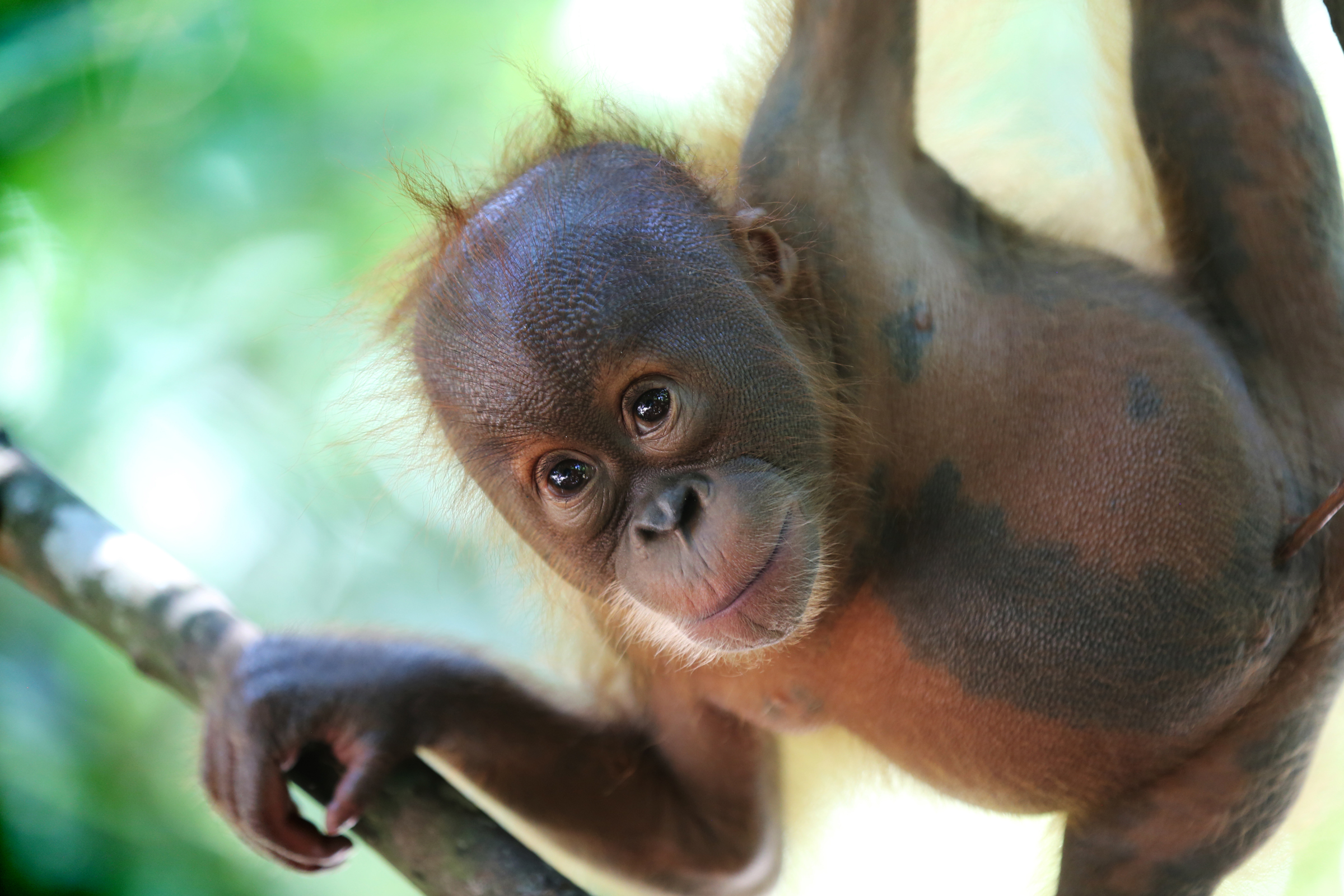
Leave a Comment
Jonathan Jacob
January 6, 2015 at 3:41 pm
Prior to reading this, I wasn’t entirely aware of the Palm Oil controversy. I shall strive to become a more socially conscious buyer; is there anywhere you would suggest I look to become more Palm Oil literate?
Alina
January 8, 2015 at 10:03 am
Great question!
Our daily habits and support of certain companies are quietly but largely contributing to the decline of the orangutan. In order to meet our demand for the ingredient, many plantations are expanding and replacing the forests of Malaysia & Indonesia as the land provides prime conditions to grow oil palm.
I encourage you to simply take a peek into your kitchen and bathroom and familiarize yourself with the ingredients of
the products you use regularly. Palm oil (also listed as Palmitate and a variety of other ‘palm’ labels), frequently appears in cereals, cookies, sweets, ice cream, milk as a Vitamin A additive, and even in soaps and cosmetics.
Some companies do in fact use sustainably grown palm oil and are not supplied by plantations contributing to deforestation. Because of the large public outcry on palm oil, many companies are listing who are their suppliers or if they are members of the Roundtable of Sustainable Palm Oil http://www.rspo.org/
To be a member, you must prove your ingredients come from sustainable sources. That website offers a directory of such companies.
The Cheyenne Mountain Zoo’s palm oil app also offers a quick way to find products that are orangutan-friendly. http://www.cmzoo.org/conservation/palmOilCrisis/
Another means I strongly support is to write to these companies. Ask them where they are getting their palm oil and pass along your new found knowledge about palm oil’s impact on wildlife.
You can learn more about WCS’s work in Indonesia and Malaysia here: http://www.wcs.org/where-we-work/asia/indonesia.aspx http://www.wcs.org/saving-wildlife/great-apes/orangutan.aspx